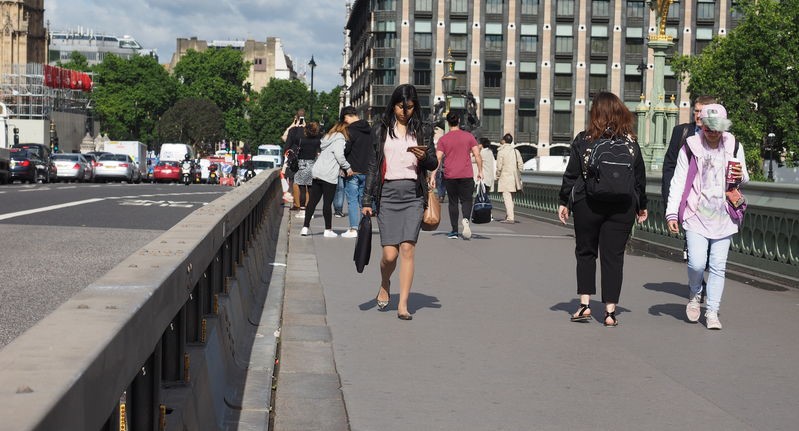Are UK terror prisoners being released too early?
According to the BBC, the UK’s Prime Minister Boris Johnson says that 74 people jailed for terror offences and released early will have their licence conditions reviewed. The Ministry of Justice launched the urgent review after convicted terrorist Usman Khan, who had served half of his sentence, killed two people in a knife attack at London Bridge on Friday November 30.

In June 2017, an attack that started on London Bridge involving a vehicle-ramming and stabbing killed eight civilians and left 48 wounded. Anti-vehicle barrriers were erected as a result. Parallels can be drawn with the attack last Friday - all wore hoax suicide vests, knives were the weapon of choice and the attackers had been identified as potential threats prior to the events. Photo: claudiodivizia|123rf
The prime minister claimed that scrapping early release would have stopped him. But the opposition party, Labour, is blaming budget cuts for "missed chances to intervene".
Friday's attack was brought to an end when police shot Khan dead. He was wearing a hoax suicide vest. The 28-year-old had been jailed in 2012 over a plot to bomb the London Stock Exchange. He was given a special jail term known as Imprisonment for Public Protection (IPP), which meant he would serve at least eight years and could not be released unless he had convinced the Parole Board he was no longer a threat.
However, in 2013 the Court of Appeal replaced the sentence with a 16-year-fixed term of which Khan should serve half in prison. He was released on licence in December 2018, subject to an "extensive list of licence conditions", police said.
Mr Johnson told the BBC's Andrew Marr show it was "repulsive" that someone as "dangerous" as Khan could be released from prison after "only serving eight years".
He blamed Khan's release on legislation introduced under "a leftie government", insisting the automatic release scheme was introduced by Labour - but was challenged about what the Conservatives had done to change the law over the past 10 years in government.
"Now that I am prime minister I'm going to take steps to make sure that people are not released early when they commit... serious sexual, violent or terrorist offences," he said. "I absolutely deplore the fact that this man was out on the streets... and we are going to take action against it." Mr Johnson said there were "probably about 74 people" convicted of serious offences who had been released early - a figure confirmed by the Ministry of Justice.
The prime minister said action had been taken immediately following London Bridge attack "to ensure there is no threat to the public".
One of the people Khan killed has been named by police as 25-year-old Jack Merritt. The second victim has been named as Saskia Jones, a 23-year-old Cambridge University student. One of the three other people injured was a member of staff from the university.
NHS London has said two victims remain in a stable condition in hospital, while a third has been discharged. They were all attending an event to mark five years of the Learning Together programme which gives students and inmates the opportunity to study together to help reduce re-offending.
New sentencing
Foreign Secretary Dominic Raab earlier said the Conservative Party had a new policy to enforce a minimum sentence of 14 years for a person convicted of serious terrorist offences.
But Professor Ian Acheson - who advised the government on how to handle extremist prisoners in 2016 - told BBC Radio 4 that it was not "a question of an arms race on sentencing toughness", but about what is done when offenders are in custody. He said 68 of the 69 recommendations he had made around the treatment and risk management of prisoners were agreed by the then Justice Secretary Michael Gove.
But he claimed they had not been implemented owing to "the merry-go-round of political replacements of secretaries of state", and the "fairly recalcitrant and unwilling bureaucracy" it created. Prof Acheson also criticised "crazy failed and ideological austerity cuts" to the police, prison and probation services.
Members of the public and the police force were praised for their intuitive, instinctive and rapid reponses to the attack. Read more here.
Reproduced under licence from BBC News © 2019 BBC
Image: gioiak2|123rf